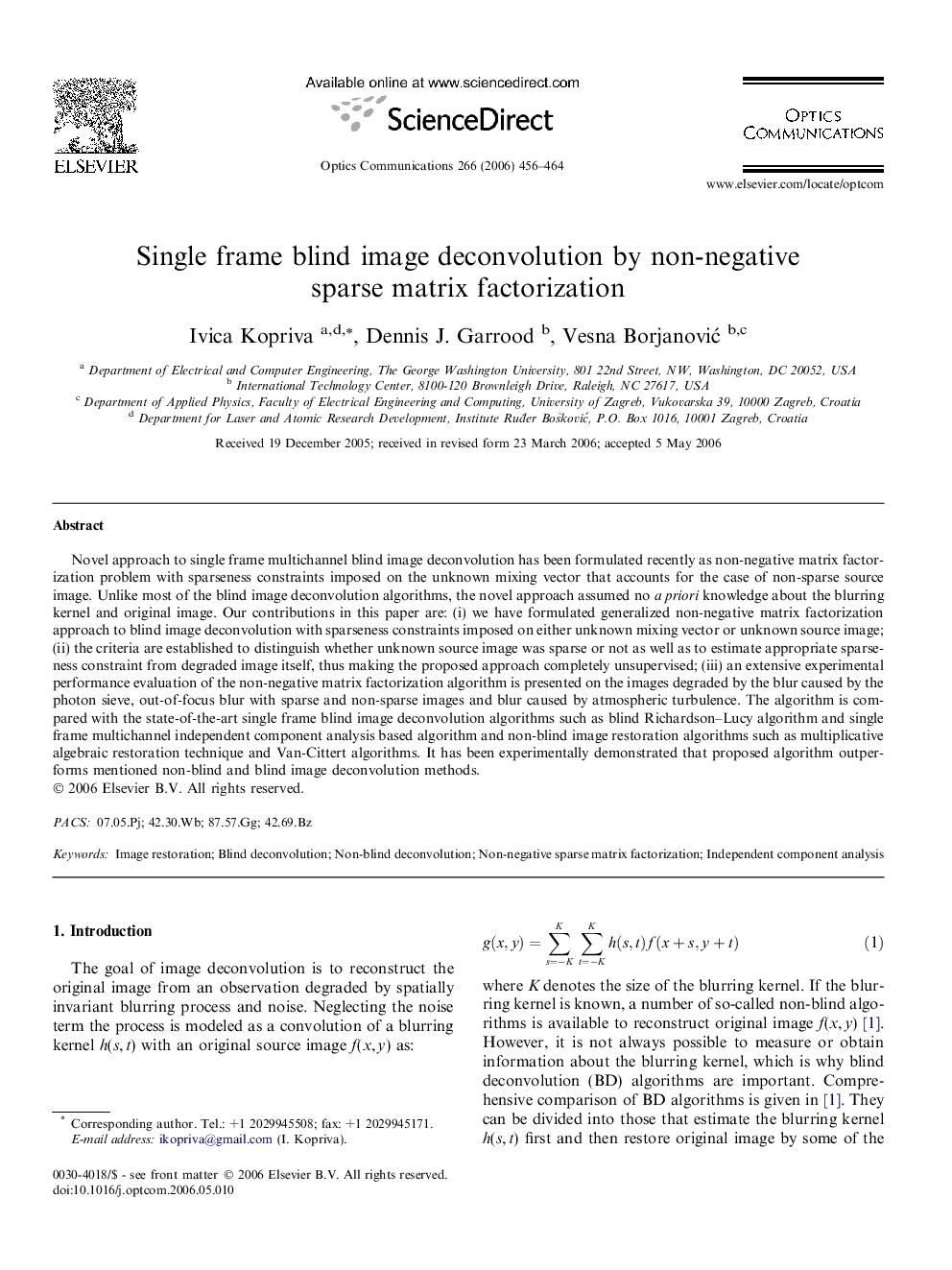| Article ID | Journal | Published Year | Pages | File Type |
|---|---|---|---|---|
| 1542411 | Optics Communications | 2006 | 9 Pages |
Abstract
Novel approach to single frame multichannel blind image deconvolution has been formulated recently as non-negative matrix factorization problem with sparseness constraints imposed on the unknown mixing vector that accounts for the case of non-sparse source image. Unlike most of the blind image deconvolution algorithms, the novel approach assumed no a priori knowledge about the blurring kernel and original image. Our contributions in this paper are: (i) we have formulated generalized non-negative matrix factorization approach to blind image deconvolution with sparseness constraints imposed on either unknown mixing vector or unknown source image; (ii) the criteria are established to distinguish whether unknown source image was sparse or not as well as to estimate appropriate sparseness constraint from degraded image itself, thus making the proposed approach completely unsupervised; (iii) an extensive experimental performance evaluation of the non-negative matrix factorization algorithm is presented on the images degraded by the blur caused by the photon sieve, out-of-focus blur with sparse and non-sparse images and blur caused by atmospheric turbulence. The algorithm is compared with the state-of-the-art single frame blind image deconvolution algorithms such as blind Richardson-Lucy algorithm and single frame multichannel independent component analysis based algorithm and non-blind image restoration algorithms such as multiplicative algebraic restoration technique and Van-Cittert algorithms. It has been experimentally demonstrated that proposed algorithm outperforms mentioned non-blind and blind image deconvolution methods.
Keywords
Related Topics
Physical Sciences and Engineering
Materials Science
Electronic, Optical and Magnetic Materials
Authors
Ivica Kopriva, Dennis J. Garrood, Vesna BorjanoviÄ,
